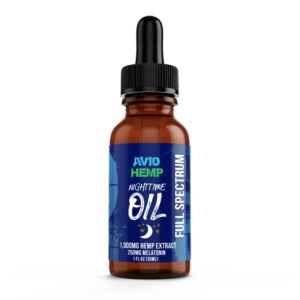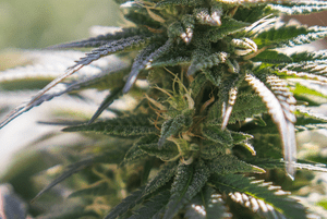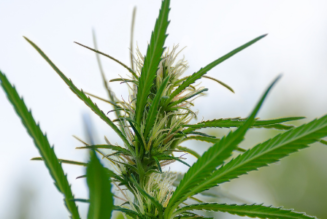“We feel that we came to a pretty good place that will really assist us with implementation and launching the market successfully.”
By Peter Callaghan, MinnPost
“We won’t be bored.”
That is the conclusion of interim Office of Cannabis Management (OCM) director Charlene Briner after seeing what chores for the new agency are contained in a conference committee agreement approved this week.
While many of the changes to last year’s recreational cannabis law were at the request of the agency, the 140-page House-Senate agreement brings with it some deadlines that will come fast this summer and fall.
In early July the agency must start verifying that what are called social equity applicants meet the legal criteria for people from groups harmed by marijuana prohibition. The application period for pre-approval licenses would run from July 24 to August 12. Then, depending on how many applications come in and how much time the agency needs to verify each applicant’s ability to fund and launch their businesses, the first lottery to distribute licenses will be held—likely in the fall.
Briner said Thursday her staff is up to the challenge.
“I’m really pleased that so many of OCM’s recommendations were included in the conference committee report,” she said. “We feel that we came to a pretty good place that will really assist us with implementation and launching the market successfully.”
The agreement now moves to the House and Senate for up-or-down votes, something legislative backers expect to win, if they get the chance. The Legislature cannot vote on bills after midnight Sunday.
After three months of debate, the amended law would include some significant changes:
- A “vetted” lottery to distribute cultivation and retail licenses rather than a strictly points-based system.
- Changes to how social equity license applicants are treated to help them get a head start, including pre-approval opportunities this fall.
- A new method to give some social equity applicants permission to begin growing cannabis sooner than current law—this fall instead of next spring—in order to have cannabis products ready for sale in spring of 2025.
- The ability for medical cannabis patients to assign a caregiver to home-grow plants on the patient’s behalf if they are unable to.
- Rules to prevent so-called financial predators from using social-equity applicants as fronts to gain access to the market.
- Caps on the numbers of licenses that will be granted in the first rollout of the industry next spring.
- The transfer of the decade-old Office of Medical Cannabis to the new Office of Cannabis Management in July rather than next March. That provides OCM already adopted cultivation rules and brings in inspection and enforcement personnel already in the field.
- The elimination of current law that would tell bars and restaurants they can’t serve a THC beverage and an alcoholic beverage to the same person within five hours.
“I feel really good about where we ended up,” Sen. Lindsey Port (DFL), the lead Senate sponsor, said after the bill language was approved. “The team at OCM has been doing great work to set the industry up for success, and I think this legislation gives them the tools they need.
“It also gives clarity about the licensing process for people who are looking to be a part of the industry while keeping our goal of an equitable, uniquely Minnesota market front and center.”
Rep. Nolan West was the only Republican on the conference committee, partly because he has been engaged with the sponsors on amendments and because he was the only Republican in either the House or Senate to vote for the bill this year. While some of his amendments were adopted during House floor debate, none of what he offered during conference committee meetings were accepted.
“I, for one, am not optimistic about this,” the Blaine lawmaker said before the conference report was adopted 9–1. “We are setting this market up for failure. I guess you can call this prediction time, I don’t think we’re going to have a smooth launch.” Rather than a market opening next spring, West said he thinks the end of 2025 or early 2026 are more likely for the first legal sales.
Briner got much of what she asked for in the agency’s first-ever legislative request bill. She wanted to provide additional help for social equity applicants by letting them get early licenses this fall, not licenses to grow cannabis or sell it but to get their businesses in order to start when final rules are adopted next spring. She also asked for language to allow such applicants to have up to 35 percent of ownership be from non-social equity eligible partners and let them sell licensed businesses after three years to non-social equity buyers.
Briner also wanted what turned out to be the most-controversial ask for the agency: replacing a points-based system for deciding which applicants would get licenses to one driven by a lottery. Briner said the change was in response to litigation and protests in other states by plaintiffs who argued that while seemingly objective, assigning points introduced subjectivity—and therefore unfairness—into the process.
The lottery
Briner always described her proposal as a “vetted” lottery—that is, to get into the lottery in the first place, applicants had to show some evidence that they would be ready to act on those licenses. In addition to avoiding litigation and delays, Briner said that her proposal would help social equity applicants by reducing the power of well-funded and well-connected applicants.
Opponents, including some potential social-equity applicants and association of people of color in the industry called it a luck-of-the-draw system that could overlook prepared applicants and reward those who might never have the money or the skills to actually launch businesses.
West’s primary objection related to the use of a lottery to distribute the first licenses. Even if lottery entrants have to show that they are ready to move toward starting their businesses, he said he thinks those are minimum standards.
“We put this new market entirely into luck,” the Blaine lawmaker said. “Luck of the draw. Chance. It is certainly possible that these few licenses that are being distributed could be distributed to businesses—social equity or otherwise—that are simply incapable of operating in this new market. And then we have a bunch of failed businesses and a market that doesn’t work and the black market gets on just fine.”
“We should be incentivizing the strongest businesses,” West said. “I think we’re all gonna be a little embarrassed in a couple of years but I would genuinely like to be wrong.”
But Port supported the lottery and after early skepticism Stephenson agreed. The final bill did make changes, however, to increase the requirements for getting into the lottery. And it added stricter rules for making sure that the people who make the applications are the actual people behind the business.
Briner said changes made to her original proposal were meant to satisfy concerns over the lottery, mainly to ask more questions of applicants to make sure they would be ready to go if they won early licenses.
Early cultivation
The major change to what Briner requested emerged over the weeks of the session with concerns from industry groups that without staging licenses—cultivators first with other aspects including retailers coming later—the next-spring rollout could consist of open doors to empty stores.
Even though the federal government is changing how it classifies marijuana—from a Schedule I to a Schedule III drug—it is still a drug that the federal government will regulate. And until federal regulators say differently, there is no legal way to move cannabis from one state to another, requiring that anything sold in Minnesota must be grown in Minnesota.
Under current law, however, OCM is obligated to draft detailed rules for the new industry and have those rules go through extensive public involvement processes. It was going to be difficult to have the rules finished before early 2025 or licenses granted before spring—timing that doesn’t mesh with the many-months-long period to go from seeding or seedling to mature plant.
OCM found a hack in current law and proposed bill language to get seeds into the ground sooner. The Office of Medical Cannabis has approved rules from nearly a decade ago governing the cultivation and processing of cannabis for the medical program. Once the medical office transfers from the Department of Health to OCM—something the bill moves up from next spring to July—OCM can use those rules to administer cultivation.
That, combined with the bill’s provisions for early licenses for social equity applicants—now dubbed pre-approvals—OCM could allow some of the licensees who win the first lottery this fall to plant and harvest. Sales, however, still wouldn’t start until permanent rules for the recreational program are approved. But at least retailers and the combination licenses called micro businesses and mezzo businesses might have some to sell when stores open.
Some industry lobbyists had wanted early cultivation permission for any grower that could show they were ready to grow—not just those who meet social equity requirements. Neither the House nor Senate agreed, and such a provision did not get into the conference agreement.
There is another quirk: Pre-approved growers can grow plants but would have to wait for permanent rules and licenses to process into products other than raw cannabis flower. That means, at least at the start of sales, flower will be the product for sale. The existing lower-potency hemp business has and will continue to sell gummies and beverages.
“As we think about availability in the market, what is notably absent is the sale of flower,” Briner said. “That is going to be a substantial portion of retail sales and that is really where we need to build supply. Processing will be important for edibles and other products that consumers look for. But the [conference committee agreement] does not allow for processing or manufacture, just cultivation.”
While Briner initially asked for permission to do this if the agency chose to, Port changed the bill to a mandate—that is, OCM “shall” provide for early cultivation rather than “may” do so.
Anti-predator language
Other states with social equity provisions have seen people with money use qualifying applicants to win licenses and then take over the business. One testifier against the lottery proposal said such practices are sometimes called “Rent a Minority” in other states. The conference report has lengthy definitions to determine who the applicant is and limits the role of investors. It also attempts to stop a practice termed “flooding the zone” that has seen well-funded businesses submit multiple applications—some using straw applicants to hide the “true party of interest.”
Only one entry into the lottery per person or business entity will be allowed.
The state approach “is more robust than what we have seen in other states that have approached this issue,” Briner said. Other states have ways to discover and cancel improper applicants after licenses were issued, but Briner thinks the methods in the bill will help root them out before.
“I think we have both front-end protections and strategies on the back end that are unique among states,” she said.
Medical cannabis
Worries that there would be a gap in supply as the existing Office of Medical Cannabis merges with OCM have mostly been alleviated by the new proposal. But an OCM request to merge the medical and recreational cultivation and processing supply chains was not included in the final bill, Briner said.
One change sought by advocates for medical cannabis patients did survive. Patients can already designate caregivers who can help purchase cannabis products from one of two providers. The new plan would also allow patients to designate a caregiver to grow the eight plants all adults are entitled to grow.
“I think they are pleased with additional patient protections,” Briner said. “And we avoided the cliff that would have occurred that would have disrupted access to medical cannabis.”
The final version, in addition to adding some qualifying medical conditions for eligibility in the program, includes a provision that would allow a doctor to authorize use of cannabis for any condition that the doctor decides would benefit from it.
Maren Schroeder, a medical cannabis advocate and a lobbyist on cannabis issues, was more concerned with where patients ended up. The bill tried to increase retail access to medical cannabis from the handful of stores the two providers offer now. The method is to allow recreational retailers to apply for medical cannabis endorsements. But Schroeder said a Senate proposal that reserved some of the mezzo business and retail licenses for applicants willing to seek endorsements was removed.
“There is no incentive for a retailer to take on the added expense of having the designated space and staff for the medical retail endorsement,” she said.
The primary provision in the conference committee report regarding existing hemp businesses is that they can remain in business. While there are strict caps for the various recreational marijuana licenses, there are none for low-potency hemp growers, manufacturers and sellers. These are the businesses legalized but not really regulated by law changes in 2022 and then regulated and taxed in House File 100.
The changes also end the authority of local governments to impose moratoria on hemp businesses as many did after the passage of House File 100
According to West, who spent much of his political capital with DFL sponsors of the bill to win changes in the hemp sections of the law, House File 100 from last year banned most hemp products other than 5 mg hemp-derived THC gummies and THC beverages. “Hemp businesses sold a bit of CBD products but many of those were also banned because they contained other non-intoxicating cannabinoids,” West said.
His amendments authorized CBN and CBC cannabinoids “since they are widely used, safe and non-intoxicating.” Changes also will allow the sale of what is called a ‘full spectrum’ product: an edible that contains the full array of naturally occurring cannabinoids beyond the ones specifically in statute.
“The primary reason for this rather complex definition is so hemp farmers can utilize the entire plant, which reduces their waste and increases their profits considerably,” West said. “Without this hemp farmers likely would have mostly disappeared once the recreational market is set up.”
“All in all my contributions helped the hemp industry claw back some of the products that were made illegal in HF 100,” West said. “It is absurd that HF 100 created a prohibition on many federally legal products while ending the prohibition on federally illegal cannabis.”
This story was first published by MinnPost.
GOP House Leaders Propose Reducing Regulatory Barriers For Some Hemp Growers In Draft Farm Bill
Photo courtesy of Philip Steffan.












